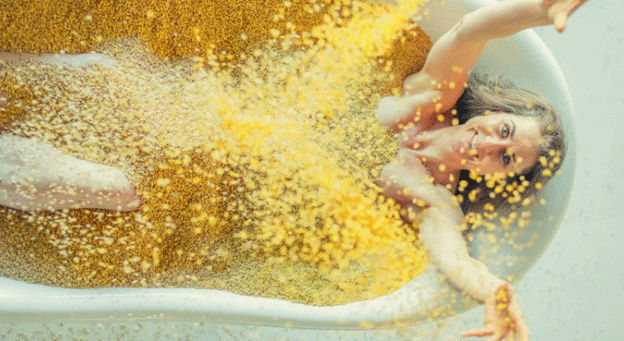Can This Dutch Grain Revolutionize Agriculture?
Frisian farmer Bianca van der Bos is leading the charge to position naked oats as a viable alternative to rice in the Netherlands. Through her Naked Oat Campaign, she aims to raise awareness about the crop’s environmental benefits, nutritional advantages, and economic potential for Dutch farmers. If widely adopted, this initiative could reduce rice imports, promote soil health, and open new market opportunities for local grain producers.
The Case for Naked Oats Over Rice
Rice is a staple food worldwide, with the Dutch consuming an average of 5 to 6 kilograms per person per year. However, rice production is highly water-intensive, contributes to methane emissions, and depends on long supply chains. The Netherlands imports most of its rice from Asia and South America, creating a carbon footprint that could be reduced by local alternatives.
Naked oats (Avena nuda) differ from traditional oats because they naturally shed their husk, making them easier to process. They are also:
- Rich in fiber, protein, and essential nutrients, making them a highly nutritious alternative to rice.
- Resistant to disease, requiring fewer pesticides and fertilizers than many other grain crops.
- Beneficial for soil health, acting as a cover crop that improves soil structure and biodiversity.
If Dutch farmers dedicated 50,000 hectares to naked oat cultivation, as Van der Bos envisions, the country could significantly reduce rice imports while increasing local grain production and food sovereignty.
From Cover Crop to Cash Crop
Currently, grain crops like oats are primarily grown in the Netherlands as rotation crops to improve soil conditions for higher-value crops such as potatoes and sugar beets. Van der Bos argues that this should change. Instead of being seen as a secondary crop, oats deserve greater recognition for their environmental and economic benefits.
She has founded the Havercoöperatie (Oat Cooperative) to bring together farmers and supply chain partners, demonstrating that naked oats can be both profitable and sustainable. With support from chefs like Jouke Piet Drijfhout, who is already incorporating naked oats into his restaurant menus, consumer interest is expected to grow.
Building a Future with Naked Oats
The Naked Oat Campaign officially launched on February 27 with a dinner event, and in March, the first planting decisions will be made based on consumer demand. Dutch households are encouraged to commit to replacing imported rice with locally grown naked oats for one year, demonstrating the feasibility of large-scale adoption.
If successful, this movement could lead to:
- New revenue streams for Dutch farmers
- Reduced reliance on imported grains
- A more climate-friendly grain production system
Van der Bos’s initiative highlights the potential of naked oats as a sustainable, nutritious, and economically viable alternative to rice. With growing concerns about food security, climate change, and agricultural sustainability, this movement could be the beginning of a significant crop transition in Europe. Whether naked oats will truly replace rice remains to be seen, but one thing is certain: this small grain has big potential.
Error




